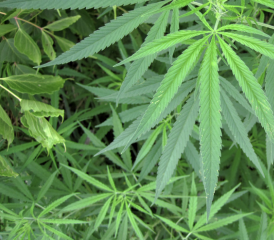Biden pardons marijuana offenses; prison terms to go up in smoke

Biden pardons marijuana users
November 3, 2022
On October 6, 2022, President Joe Biden issued a proclamation entitled “Granting Pardon for the Offense of Simple Possession of Marijuana.” Essentially, the President called upon Article II of the U.S. Constitution in granting “full, complete, and unconditional” pardons to all current United States citizens and lawful permanent residents who committed the offense of “simple possession of marijuana” in violation of the Controlled Substances Act.
In effect, the pardon shall “restore” anyone convicted of illegal possession of marijuana “full political, civil, and other rights.”
In a statement that was given alongside his proclamation, Biden argued that sending people to prison for possessing marijuana has “upended too many lives.” Criminal records for marijuana possession have additionally imposed “needless barriers to employment, housing, and educational opportunities.” He added that while marijuana is used at similar rates between white and Black individuals, Black people have been arrested, prosecuted, and convicted at “disproportionate rates.”
To end the “failed approach” of incarceration as punishment for marijuana possession, the president proposed three new steps: first, the issuing of pardons supervised by the Attorney General, Merrick Garland, who will be acting through the Pardon Attorney, Elizabeth G. Oyer. Certificates of pardon will be granted to eligible applicants either charged or convicted with the crime of marijuana possession.
In addition, Biden urged all Governors to “do the same with regard to state offenses” of marijuana possession.
Biden’s pardon would also review and revise how marijuana is scheduled or classified by the federal government. Right now, marijuana falls under Schedule I of the Controlled Substances Act, the tier designated for the most dangerous substances. Other drugs in this schedule include heroin and LSD; according to Biden, marijuana sits at a higher classification than fentanyl and methamphetamine–substances driving the opioid epidemic in America.
Possession of other controlled substances will not be a pardoned offense under Biden’s proclamation. Additionally, the pardon will not apply to those who were non U.S. citizens “not lawfully” present in the country at the time; distribution, possession with intent to distribute, and any other additional marijuana charges other non-pardonable offenses under the proclamation.
Support for the legalization of marijuana has been growing steadily throughout the last five decades. According to a 2021 Gallup opinion poll, a 68 percent majority of those in favor of legalization manifested as a record high for Americans. As of 2022, 37 states and D.C. have allowed the medical use of marijuana. Furthermore, 19 states and D.C. have legalized certain amounts of the substance for recreational use.
On October 7, New Hampshire Public Radio (NHPR) noted that state defense attorneys and criminal justice advocates expressed hopes for policy changes in New Hampshire; currently, it is the only state in New England where marijuana is illegal, despite efforts in decriminalizing small amounts of the substance in 2017.
However, Biden’s goals will be complicated in the Granite State. Governor Chris Sununu cannot grant pardons on his own: he must coordinate with the Executive Council. The New Hampshire Supreme Court has also stated that a pardon does not necessarily expunge someone’s record, it merely ends the consequences of a conviction. Ultimately, a marijuana possession charge can still be found in background checks, which could compromise employment, education, or housing opportunities.
Biden’s pardon comes at a time of heightened marijuana use from college-aged students. The U.S. Department of Human and Health Services noted a “historic high” among this demographic; in 2020, daily or near daily use of marijuana rose from 5 percent in 2015 to 8 percent.
National Institute of Drug Abuse (NIDA) Director Nora D. Volkow, M.D. hypothesized explanations for this increase, stating that the pandemic “dramatically changed the way that young people interact with one another.”
Saint Anselm students expressed their thoughts on this issue. Pat Marcoux ‘23, spoke on behalf of the Saint Anselm College Republicans in support of Governor Sununu’s position. “Under his leadership, the state successfully decriminalized Marijuana back in 2017.”
“His administration has been making great strides to combat the opioid epidemic and drug overdoses here in New Hampshire,” Marcoux concluded.
Alternatively, James Maloney ‘24 spoke as the president of the College Democrats. “This pardon was so needed, in undoing the damage from the war on drugs,” the junior stated. “Regarding college use, I believe that this will help to further eliminate anxiety that individuals face either when they are taking it or if they are surrounded by it.”
As for the future, Maloney expressed uncertainty. “On the state level, I think that we will see marijuana legalized in New Hampshire but when that will happen, I’m not really sure. However, I am confident that it will not be during this term based on the legislature.”
The upcoming election on November 8th could potentially alter New Hampshire’s stance on this issue. While incumbent Sununu has previously opposed legislation to further decriminalize marijuana, he stated that legalization could be “inevitable” in the future; his opponent in the gubernatorial race, Tom Sherman (D), wishes to “expedite efforts” in pardoning “state-level offenses,” publicly declaring support for Biden’s policy change.


